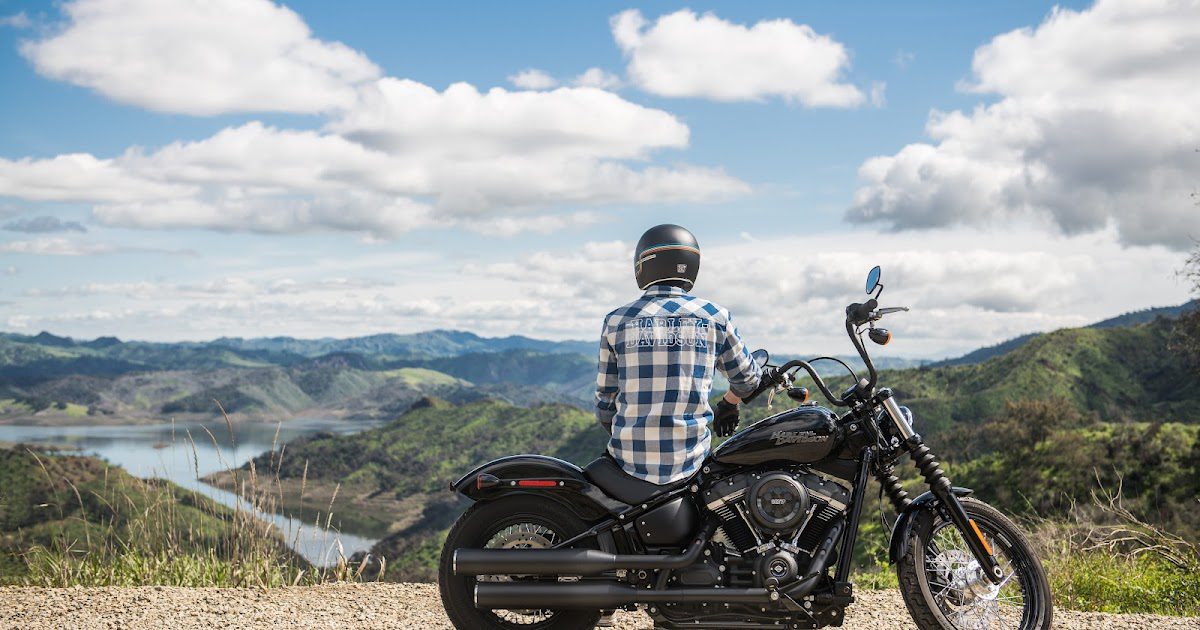7 Safety Tips Every Motorcyclist Needs to Know

7 Tips on How to Ride a Motorcycle Safely and Responsibly
It’s no secret that riding a motorcycle comes
with several safety risks. In 2020 alone, 5,579
motorcyclists were killed in accidents in the United States according
to the National Highway Traffic Safety Administration (NHTSA),
accounting for 14 percent of all traffic fatalities and the highest number of
deaths since the Fatality Analysis Reporting System (FARS) began reporting in
1975.
As drivers everywhere are reminded to “Look twice. Save a life.” to promote safer roads for motorcyclists, it’s also important
for motorcyclists to remember their own responsibilities on the road in order
to maintain a safe traveling environment. While statistics indicate that riding
a motorcycle can be a dangerous hobby, there are several measures you can take
as a rider to increase your safety on the roads. Continue reading to learn
seven motorcycle safety tips before your next trip!
Wear a Safe, DOT-Compliant Helmet
The NHTSA estimates the use of a DOT-compliant
helmet is 37 percent effective against preventing death for riders and 41
percent effective against preventing death for passengers. If a helmet has a
DOT symbol on the back, this means the manufacturer claims to meet certain
requirements mandated by the NHTSA. But be wary of “novelty helmets” and advertisements
like “thinnest” or “lightest DOT-compliant helmet available”—these helmets will
not protect you in the event of a crash.
Another thing to
consider is the fit of the helmet on your head. Your helmet should fit snugly,
providing even pressure across all points of your head without any wiggle room.
While there are many styles of helmets available, full-face helmets are often
considered safest as they provide the most protection. As a reminder, the
buckle on your helmet should always be properly fastened when riding.
Ride Sober
More than a quarter of motorcyclists who were
killed in accidents in 2020 were intoxicated, according to the NHTSA. It goes
without saying that alcohol impairment can be a deadly combination when coupled
with operating a motorcycle. Still, the percentage of motorcyclists who were
impaired at the time of a fatal accident exceeds the rate of that of any other
motor vehicle category. A motorcyclist relies on their motor skills and reaction
time to travel safely—alcohol impairment makes that impossible.
Slow Down
34 percent of all riders
involved in fatal crashes in 2020 were speeding, and 45 percent of those were
riders aged 25 to 29. Riding over the speed limit adds to the inherent risk of motorcycling
because it reduces the amount of time you (and others around you) have to
react.
It also means the
consequences of a potential crash will be more severe as a rider will be more
vulnerable at high speeds. A main reason the fatality rate is higher for
motorcyclists than drivers of cars is that a motorcyclist is entirely exposed
and at the mercy of their surroundings. At high speeds, it is no surprise that
this can be deadly.
Look Over Your Bike Before Every Ride
Another result of
being completely exposed on only two or three wheels is that a simple
mechanical failure could be potentially fatal. While a blown-out tire in a car
is dangerous, a blown-out tire on a motorcycle will almost surely lead to a
crash. Always inspect your tire tread and pressure, brakes,
fluids, lights, signals, and mirrors before every ride and make sure the
motorcycle is fit for the road first.
Become Familiar with Your Bike and the Road
Every motorcycle is a
little bit different. Before you go taking any long trips,
you should get to know your motorcycle and how it handles so that you can work
towards becoming an experienced rider.
When riding a
motorcycle, there’s no substitute for experience. In 2020, 36 percent of
motorcycle riders involved in fatalities were driving without a valid
motorcycle license. Take the time to practice braking, shifting, and navigating
turns in a safe setting before taking to the roads.
If you have a
motorcycle permit and are still in the process of acquiring your license, be sure to take things
slow at first as this can be a valuable time to learn how to ride properly and
safely.
Ride Defensively
Many motorcyclists encourage
the idea of “Look twice. Save a life.”
through yard signs and other means to promote awareness and protection for
motorcyclists on the roads. Another important component of traffic safety when
it comes to motorcycles is understanding that a motorcycle is simply not as
visible as a car in traffic. To be safer, a motorcyclist must ride defensively.
Don’t assume you have
been spotted by other motorists on the road because there is a chance you may
be overlooked. Always ride within the speed limit, stay aa safe distance from
other vehicles and be ready to react to your surroundings.
Consider Your Insurance Coverage Needs
While liability
insurance is required on a motorcycle for property damage and bodily injury,
you may also want to consider additional coverages such as comprehensive and collision so that your
motorcycle is protected in the event of an accident. Motorcycles are not cheap
and while you may be looking to cut expenses wherever possible, think
realistically about what coverage you require should your bike become damaged.




